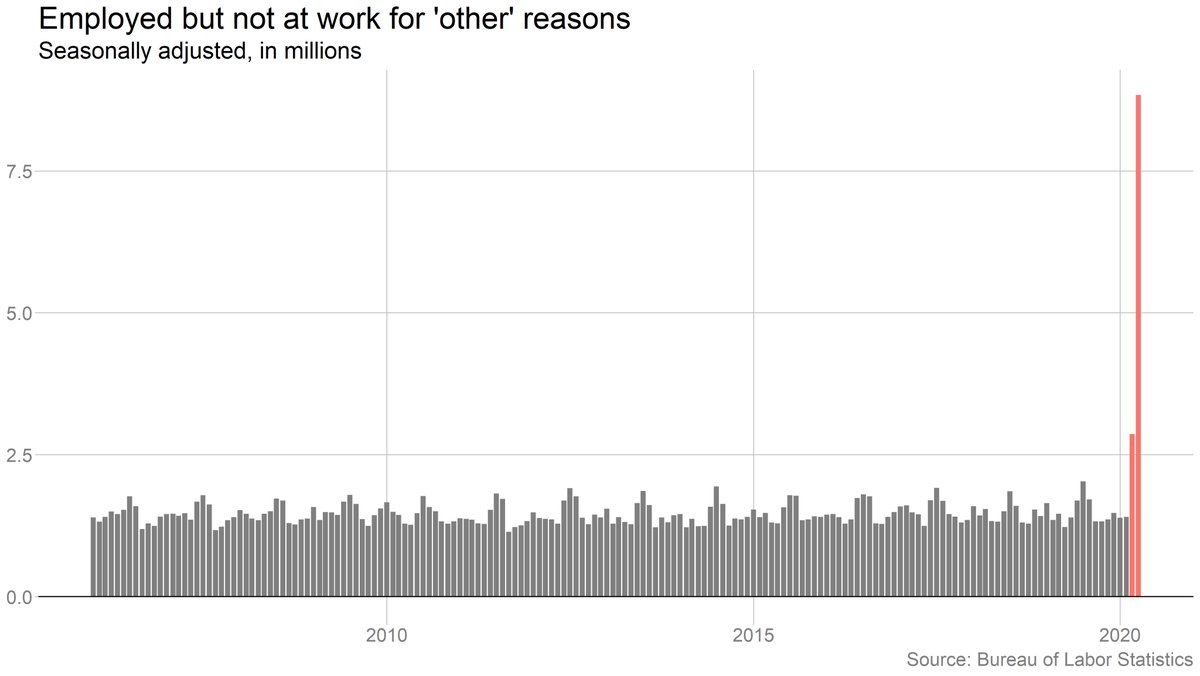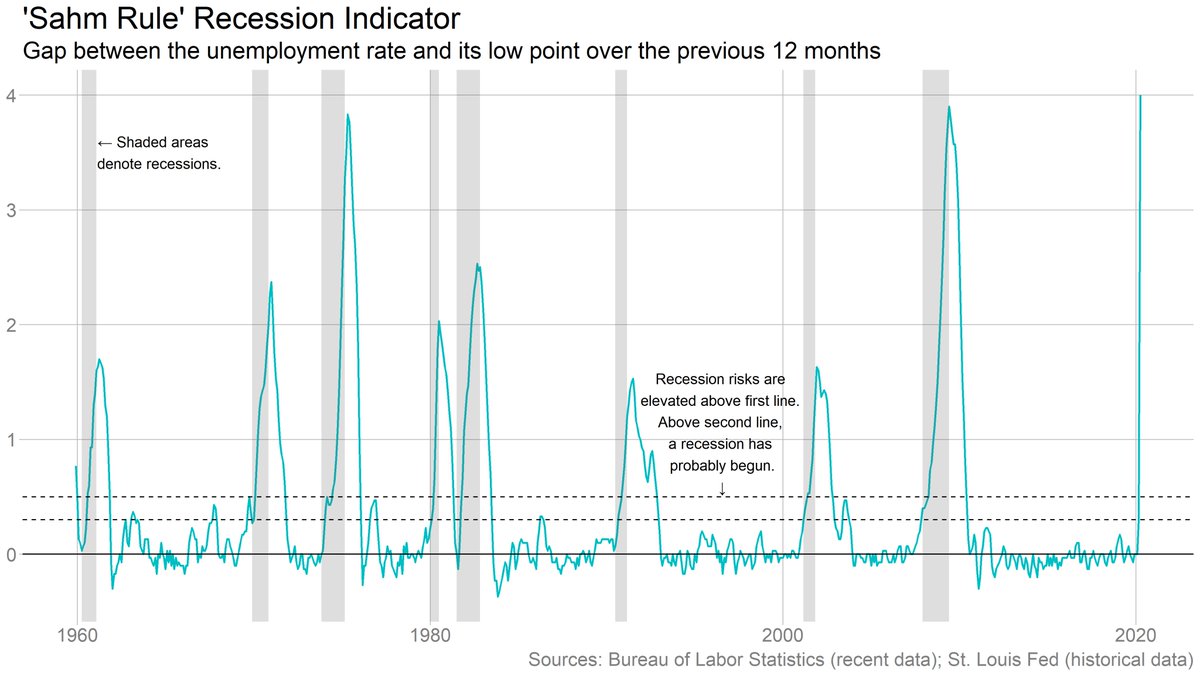nytimes.com/2020/05/08/bus…
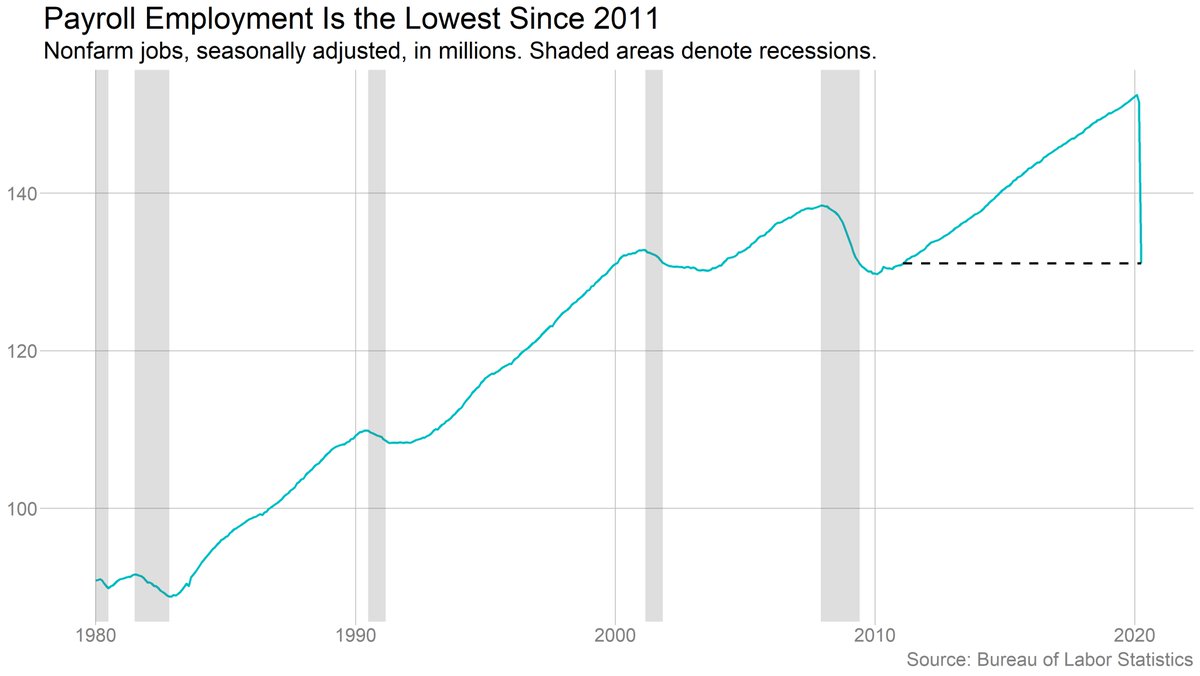
cc @D_Blanchflower, who has documented the relationship between "part-time for economic reasons" and (weak) wage growth.
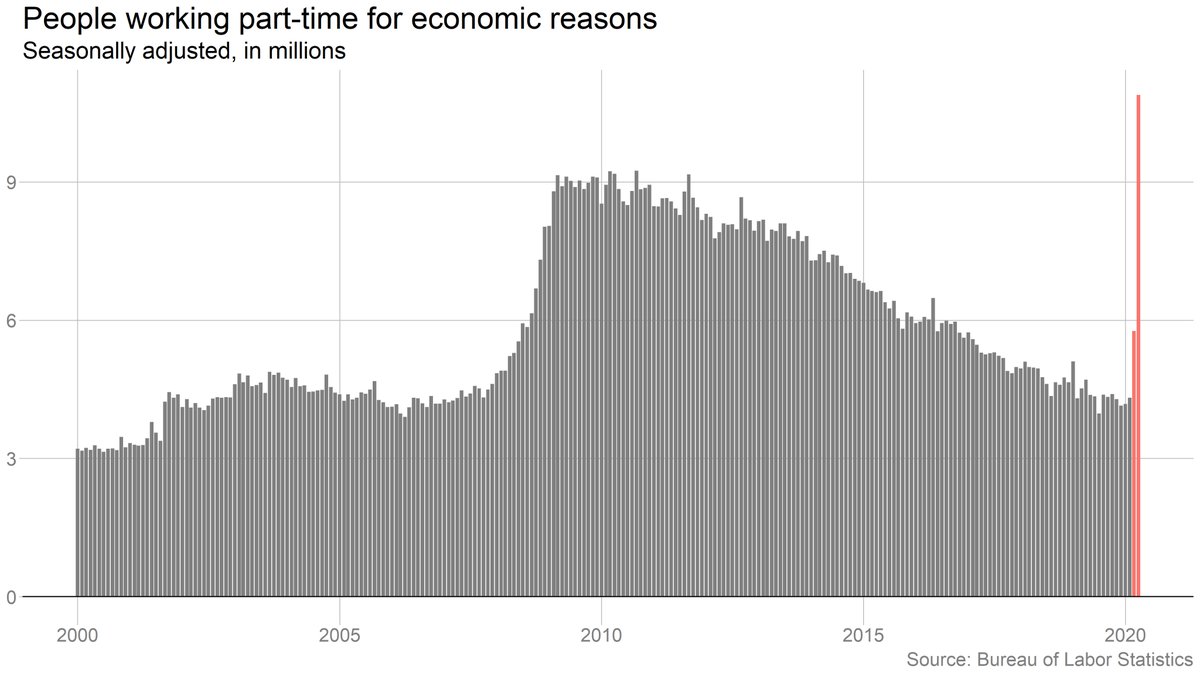
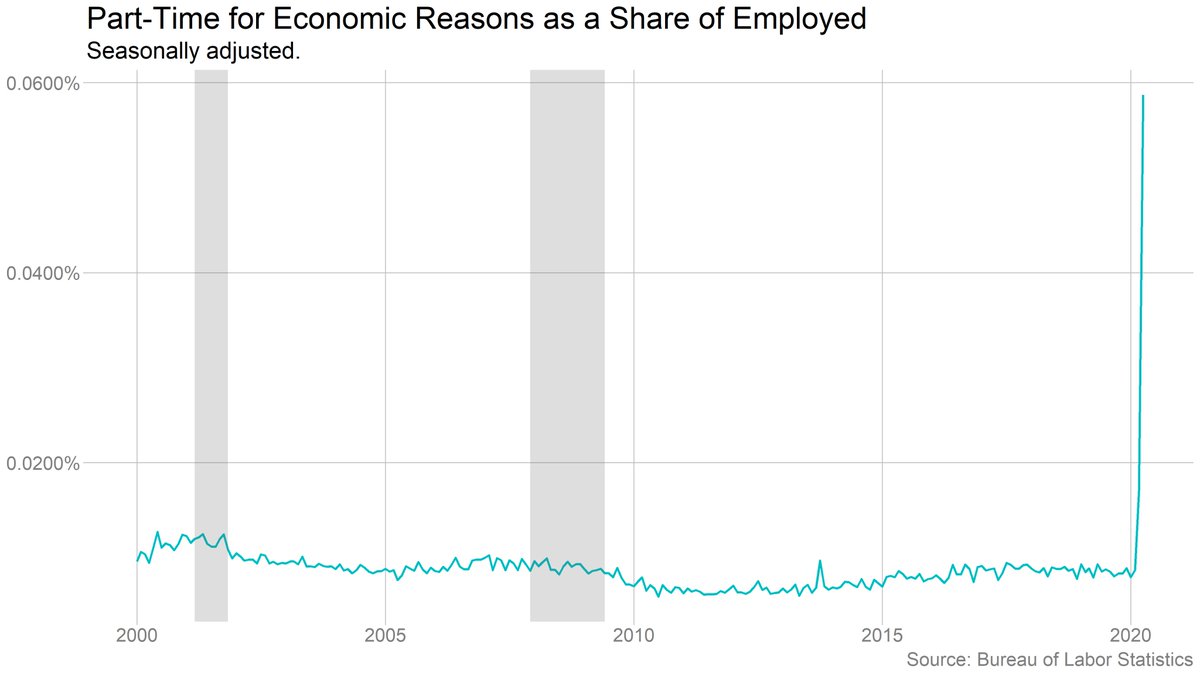
If they had been, "the overall unemployment rate would have been almost 5 percentage points higher than reported," or nearly 20%.
